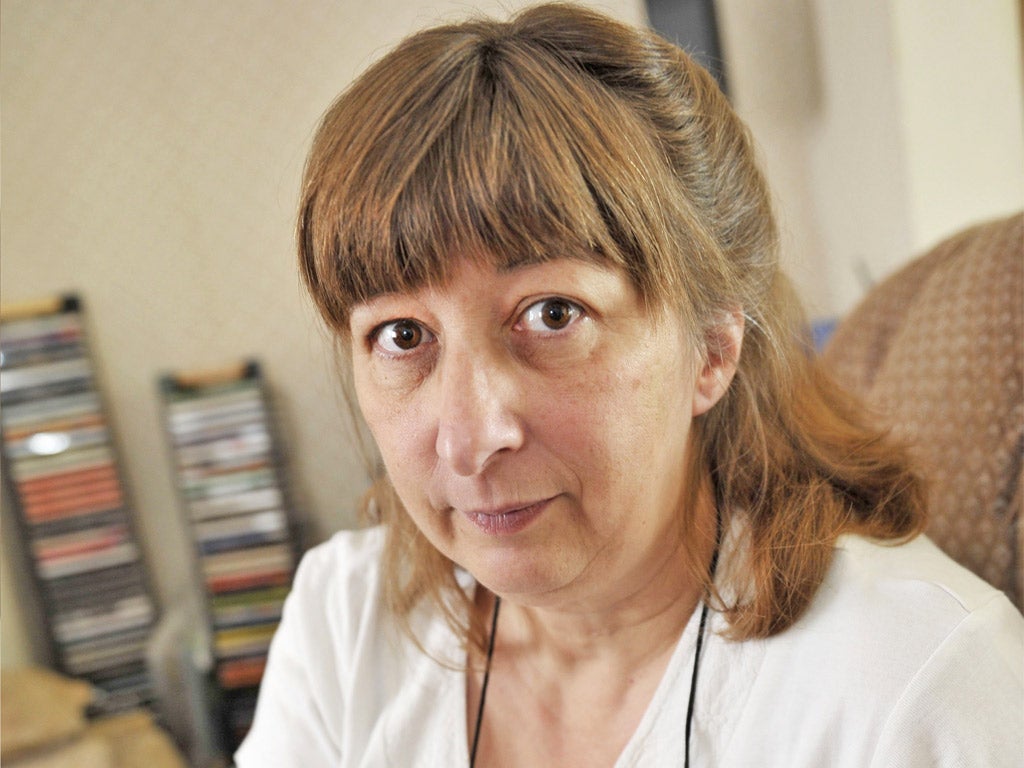I started receiving benefits after being given less than 3 years to live. And now the Government wants to make life even harder for people like me
Plans to cap benefits will only force more people into abject poverty

Your support helps us to tell the story
From reproductive rights to climate change to Big Tech, The Independent is on the ground when the story is developing. Whether it's investigating the financials of Elon Musk's pro-Trump PAC or producing our latest documentary, 'The A Word', which shines a light on the American women fighting for reproductive rights, we know how important it is to parse out the facts from the messaging.
At such a critical moment in US history, we need reporters on the ground. Your donation allows us to keep sending journalists to speak to both sides of the story.
The Independent is trusted by Americans across the entire political spectrum. And unlike many other quality news outlets, we choose not to lock Americans out of our reporting and analysis with paywalls. We believe quality journalism should be available to everyone, paid for by those who can afford it.
Your support makes all the difference.The latest decision by the Government to cap benefits to a maximum of £23,000 a year worries me. Not for myself as much, but for those who will be affected by it and the other welfare cuts to come. I know they’ll be as shocked I was when I entered into the benefit system. It’s not as easy as people think it is.
What many people don’t realise is many do not choose to be on benefits. I certainly didn’t choose to be in this situation.
In 2007 I was working as an administrator when I started to walk in a strange way, veering towards the left, wearing down the heel on my right shoe. I couldn’t sense the floor when walking. People thought I was slightly drunk.
Doctors gave me an MRI scan on my head and discovered my "uninvited guest": a benign inoperable brain tumour. I was given two and half years to live. It was a huge shock.
I didn’t want to face up to the fact I had an illness that would kill me so, despite my diagnosis, I carried on working full time. In 2009, I had radiotherapy to try to stop the tumour from growing. Thankfully this has so far been successful but it means I am no longer able to work. Without the NHS I wouldn’t be alive.
Having an inoperable brain tumour is like living with an unexploded bomb in your head, it doesn’t just go away.
In 2011, I was wrongly told I was fit to work and my benefits were stopped. Luckily my partner Bill works on a landfill site but money was tight. I lived on toast as I wanted to make sure, with his skilled and dangerous job, that he was well fed. It took nearly a year to get the decision about my benefits overturned. We got into debt which we have very slowly paid off.
Through no choice of my own, benefits are an essential part of my life, and mean that I can just get by. So to cap them further without first sorting out the main issues – such as affordable rents – is a good way to go if you want to create ghettos, or increase levels of homelessness and unemployment. We need to be careful not to penalise people claiming benefits because it won’t find them work, nor will it change their disability or illness. However, as I have found, it could make the situation worse.
People make assumptions about people on benefits because they are influenced by the media, and shows like Benefits Street. But you can't tar every benefit claimant with the same brush. It’s important to hear other stories, like mine, and that’s why I’m pleased campaigns like Who Benefits? are encouraging people to share their stories to try and get a different debate going about benefits.
Ultimately, you never know when you might need to rely on support. It always surprises me how attitudes change once people are affected, when it happens to them through no fault of her own. But all you really need to do is have a shred of empathy, and just listen to those affected – you may find yourself changing your mind a lot more quickly than you first thought.
Lesley supports the Who Benefits? campaign which gives a voice to those supported by benefits. Visit www.whobenefits.org.uk or @WeAllBenefit for more information.
Join our commenting forum
Join thought-provoking conversations, follow other Independent readers and see their replies
Comments